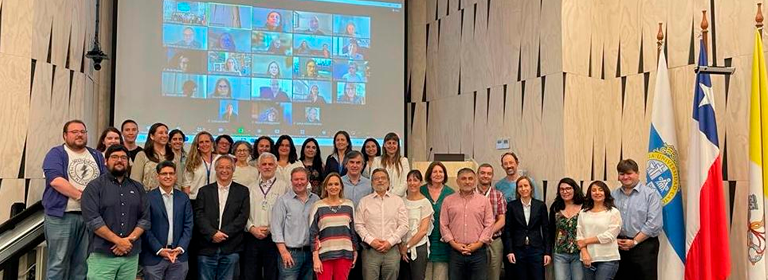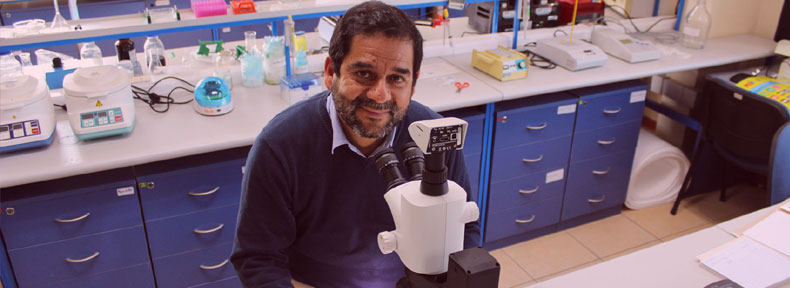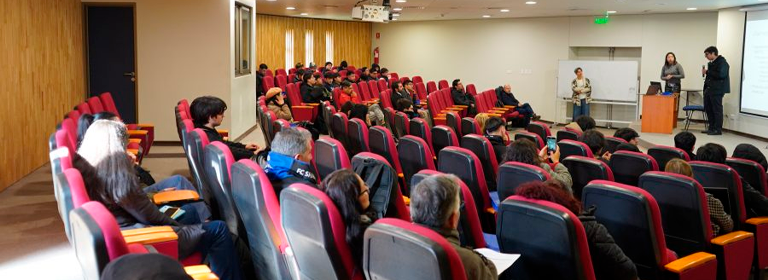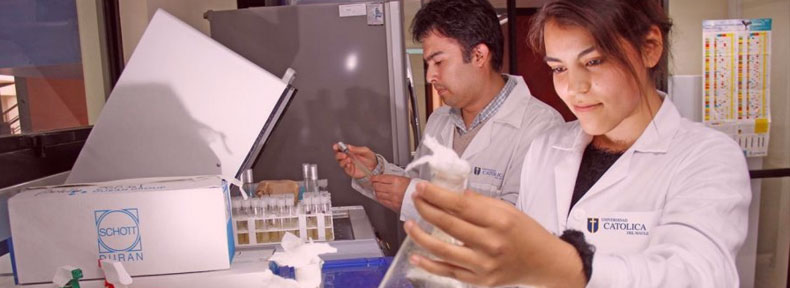Chile will have a scientific entity of excellence oriented to the reduction of access barriers in cancer care, and the implementation of public policies related to the disease.
 A new institution promises to improve cancer treatment in Chile, where the illness is among the leading causes of death, with nearly 30,000 deaths each year. The Center for Cancer Prevention and Control (CECAN by its acronym in Spanish), will be implemented by the Universidad Católica and Universidad de Chile, with resources from the National Agency for Research and Development (ANID).
A new institution promises to improve cancer treatment in Chile, where the illness is among the leading causes of death, with nearly 30,000 deaths each year. The Center for Cancer Prevention and Control (CECAN by its acronym in Spanish), will be implemented by the Universidad Católica and Universidad de Chile, with resources from the National Agency for Research and Development (ANID).
“The idea is to make high-quality scientific production and translate it into evidence-based public policies. This normally takes ten years or more; we want to make what we discover come true, hopefully within a year. It is what we call ‘Translational Medicine,'» said the academic from the Universidad Católica del Maule (UCM), PhD Laura Huidobro, a researcher associated with the initiative that includes 34 nationally, and internationally, renowned experts.
“We, as UCM, can participate in any of the research lines of the project but we are specifically called to try to make an early diagnosis and timely treatment for gastric cancer. The initial focus will be to reduce the waiting list for upper digestive endoscopies, used to diagnose the pathology,” said the professor from the Department of Preclinical Sciences of the School of Medicine in campus.
The work of CECAN will be organized in five lines: cancer prevention and inequality reduction, optimization of patient care, innovation and personalized attention, research in health policies, and «Data for Action», an integrated platform for standardized registration of clinical data.
In addition to the UCM, the initiative has the support of the Universities of Antofagasta, de la Frontera, Andrés Bello and Desarrollo, and the National Cancer Institute.
 Molina: A Local Challenge
Molina: A Local Challenge
According to Huidobro, in Maule the efforts will be concentrated in Molina, the city with the highest incidence of gastric cancer in the country.
“There are several hypotheses, and they probably have a lot to do with the interaction between genetics, the environment, and the presence of helicobacter pylori, a bacterium that is found throughout the world and not only in Chile. We want to see how we can reduce the incidence of cancer there, make early diagnoses, start timely treatment, and evaluate the response. If everything we conclude there is applicable to another community, we could extrapolate it to the rest of the country and devise public policies,” she highlighted.
Since 2014, Molina has been the subject of a study entitled «MAUCO», which analyzes the high rates of chronic diseases, including different types of cancer like gastric cancer. “Before the pandemic, there were 300 patients in Molina waiting for an endoscopy; now we think it will be 500. We are going to start with them and compare it to people on the waiting list that unfortunately we will not be able to get to, to see how much we are contributing. We want to start with that because we already have a relationship with the municipality and the Hospital of Molina and there is a very good relationship with the community,” the scientist specified.













